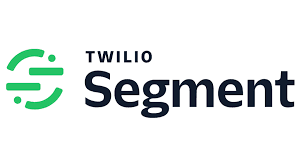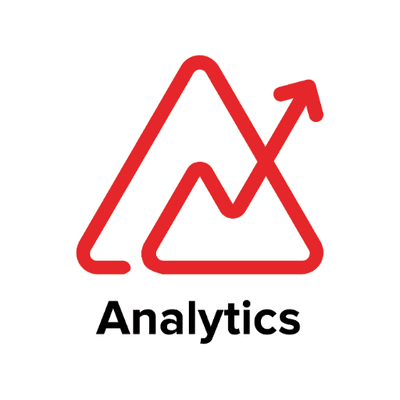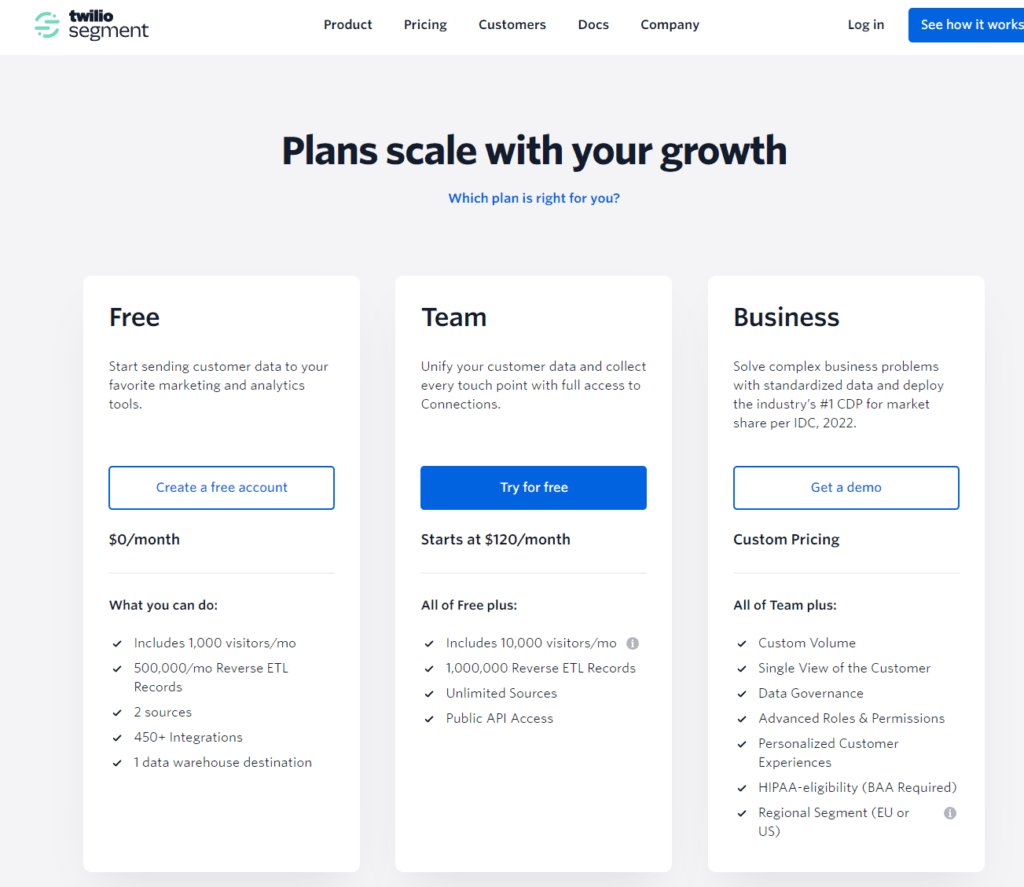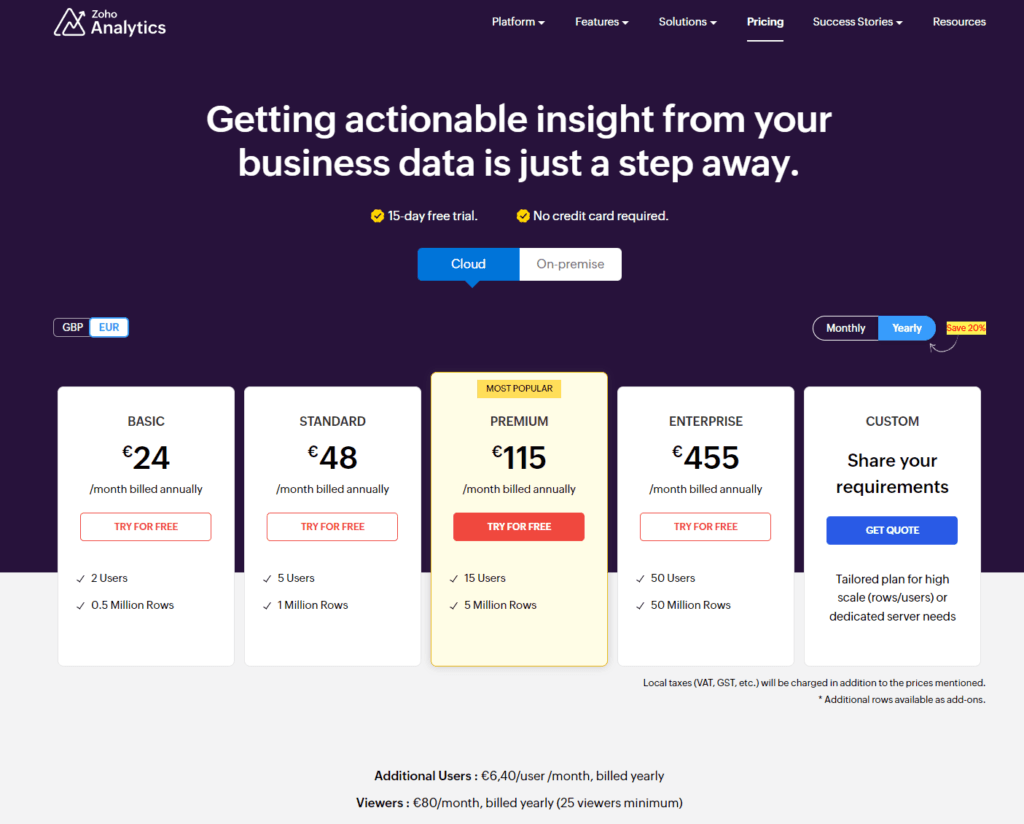In the digital era, where data not only speaks volumes but guides decisions, the hunt for the perfect analytics tool can feel like searching for a needle in a haystack. Enter Segment and Zoho Analytics, two formidable contenders in the analytics arena, each promising to be the linchpin in understanding your data and leveraging it to drive business growth. Whether you’re a startup on the brink of discovery or an established enterprise navigating through seas of data, choosing between Segment and Zoho Analytics is pivotal. Let’s embark on this exploration, starting with a critical comparison point: Integration Capabilities.
Segment | Zoho Analytics |
|---|---|
| G2 Score – 4.6 out of 5 stars | G2 Score – 4.3 out of 5 stars |
| TrustRadius Score – 8.3/10 | TrustRadius Score – 8.1/10 |
Integration Capabilities
In the world of analytics, the ability of a tool to seamlessly integrate with other software is not just a convenience—it’s a cornerstone for building a comprehensive understanding of your business through data. Here’s how Segment and Zoho Analytics stack up in enabling businesses to consolidate and analyze data across various platforms.
Segment:
Segment shines as a customer data platform with a strong emphasis on integration capabilities. Designed to be the one-stop-shop for collecting, managing, and routing your data, Segment offers connectivity with a plethora of tools across analytics, marketing, CRM, and more. Its primary strength lies in the ease with which it allows businesses to funnel data from multiple sources into their chosen analytics tools, thereby eliminating data silos and ensuring a unified view of customer interactions. For businesses that use a diverse stack of applications to run their operations, Segment’s robust integration ecosystem simplifies the data pipeline significantly, making it an invaluable asset for those looking to centralize their data strategy.
Zoho Analytics:
Zoho Analytics, on the other hand, offers a self-contained analytics solution with strong integration features, particularly within the Zoho ecosystem. While it can connect with and import data from external sources, including popular software and platforms, its integration capabilities are particularly seamless with other Zoho apps. This makes Zoho Analytics an attractive option for businesses already invested in the Zoho ecosystem, as it provides a straightforward path to leverage data across applications. Beyond Zoho’s own suite, the platform supports integration with external databases, cloud storage services, and online applications, enabling businesses to bring together data from various sources for comprehensive analysis.
Ease of Use and Learning Curve.
In the analytics tool landscape, where the power of data is unlocked through sophisticated software, the user experience is paramount. An intuitive interface and a manageable learning curve not only ensure that your team can start leveraging insights quickly but also play a crucial role in the tool’s long-term adoption and effectiveness.
Segment:
Segment, with its infrastructure-focused offering, primarily caters to developers and data analysts by providing a backbone for data collection and routing. The initial setup involves a technical understanding of APIs and data schemas, which might pose a challenge for those without a technical background. However, once the data pipeline is in place, Segment works seamlessly in the background, collecting and directing data to your analytics and marketing tools. This setup process is a one-time investment that pays off in streamlined data operations, though it requires a commitment to climb the learning curve.
Zoho Analytics:
Zoho Analytics prioritizes a user-friendly experience, targeting a broader audience that includes non-technical users. Its interface is designed for intuitive interaction, allowing users to drag and drop elements to create reports and dashboards. This approach significantly reduces the time and effort required to start generating insights, making Zoho Analytics an attractive option for businesses seeking immediate value from their data. The platform offers a wealth of tutorials, templates, and support materials to help users navigate its features, further flattening the learning curve.

Related: Check out our free SEO suite

Data Analysis and Reporting Capabilities
The core value of any analytics tool lies in its ability to dissect vast amounts of data, transforming it into actionable insights that can drive strategic decisions.
Segment:
Segment’s approach to data analysis is fundamentally different from that of traditional analytics platforms. It acts as a powerful conduit, focusing on the collection, unification, and routing of data to other analytics, marketing, and data warehousing tools. This means that while Segment itself does not offer direct data analysis or reporting features, it enables a seamless flow of data into tools that specialize in those functions. The strength of Segment lies in its ability to ensure data consistency and accessibility across the tools you already use or plan to incorporate into your analytics strategy. The value here is in the setup of a flexible, reliable data infrastructure that feeds into targeted analysis and reporting tools tailored to specific needs.
Zoho Analytics:
Zoho Analytics is designed as an all-in-one analytics solution, offering robust data analysis and reporting capabilities within the platform. It provides users with the tools to create detailed reports and dashboards, leveraging a wide variety of visualization options to make data more comprehensible and actionable. With features like predictive analytics, AI-powered insights, and an intuitive drag-and-drop interface, Zoho Analytics is equipped to handle complex data analysis tasks directly within the platform. This integrated approach to data analysis and reporting makes Zoho Analytics particularly appealing for businesses looking for a comprehensive solution that can deliver insights without the need for additional analytics tools.
Customer Support and Community Engagement
Segment:
Segment has cultivated a niche but highly engaged community, primarily composed of data engineers, developers, and analysts who are deeply involved in the technical aspects of data integration and management. This specialized community is an invaluable asset for users navigating the complexities of setting up and optimizing Segment’s data pipelines. Through dedicated forums, GitHub repositories, and social media groups, Segment users exchange scripts, workflows, and custom solutions, enriching the platform’s utility with a wealth of shared knowledge.
Moreover, Segment’s direct customer support, accessible via email and through a comprehensive knowledge base, ensures that users can resolve technical issues with expert guidance. For businesses with the technical acumen to leverage Segment’s advanced data infrastructure capabilities, this blend of professional support and community wisdom provides a solid foundation for maximizing the platform’s value.
Zoho Analytics:
Zoho Analytics takes a broader approach to user support, reflective of its wide-ranging appeal to businesses of various sizes and industries. With a focus on user-friendliness and accessibility, Zoho Analytics offers extensive learning resources, including detailed documentation, video tutorials, and interactive webinars that cater to both new users and seasoned analysts. Zoho’s customer support extends through multiple channels, including live chat, email, and phone, ensuring responsive assistance for operational queries or technical issues.
The Zoho Analytics user community, facilitated through forums and user groups, serves as a lively platform for sharing insights, asking questions, and discovering innovative uses of the tool. This environment not only enhances the user experience through peer support but also fosters a sense of belonging among users, encouraging collaboration and continuous learning.
Scalability and Future-proofing
In the context of Segment and Zoho Analytics, scalability refers to the capability of the platform to handle increasing volumes of data, more complex analytics requirements, and a growing number of integrations without degradation in performance. Future-proofing, on the other hand, relates to how well the tool can adapt to new technologies, data sources, and business models, ensuring that investments made today continue to deliver value as your business evolves.
Segment:
Segment is architected with scalability at its core. It’s designed to accommodate businesses as they grow, from startups at their inception to global enterprises managing vast streams of data from multiple sources. The platform’s robust infrastructure supports scaling data collection and integration efforts effortlessly, allowing organizations to add new data sources and destinations as they expand their tech stack. Furthermore, Segment’s emphasis on data quality and governance ensures that as the volume and variety of data grow, the integrity of your analytics does not diminish. This makes Segment an attractive option for businesses projecting significant growth or diversification in their operations and data strategies.
Zoho Analytics:
Zoho Analytics also offers commendable scalability, with a flexible platform that caters to small businesses and large enterprises alike. Its ability to connect with a wide range of data sources, both within and outside the Zoho ecosystem, and to process large datasets, makes it a versatile tool for businesses at different stages of growth. Zoho continuously updates its platform, introducing new features and integrations that keep pace with technological advancements and emerging business needs. This commitment to innovation and adaptability ensures that businesses using Zoho Analytics can continue to derive insights and value from their data, even as their requirements evolve.
Integration with Current Systems
This factor is crucial for ensuring a seamless workflow and maximizing the utility of your analytics solution within the existing digital ecosystem of your business. The ability of an analytics tool to integrate effectively with your current systems, software, and data sources determines not just the efficiency of data flow but also the comprehensiveness and accuracy of the insights generated. Let’s delve into how Segment and Zoho Analytics perform in this domain.
Segment:
Segment’s architecture is built around the concept of being the ultimate data hub, offering extensive integration capabilities with a wide range of platforms, from marketing automation and CRM systems to data warehouses and customer service tools. Its strength lies in its ability to collect data from any touchpoint, process it according to specified rules and conditions, and then distribute it to other tools in your stack in a structured and usable form.
This makes Segment particularly valuable for businesses that rely on a diverse set of applications and wish to maintain a unified view of their data across these platforms. The depth and breadth of Segment’s integrations ensure that regardless of the specific tools you use, Segment can fit into your ecosystem with minimal friction, enhancing data consistency and accessibility across your organization.
Zoho Analytics:
Zoho Analytics, while offering a robust analytics platform, places a strong emphasis on integration within the Zoho ecosystem, providing seamless connectivity with other Zoho apps. Beyond its native ecosystem, Zoho Analytics supports integration with a variety of external data sources and applications, including popular cloud storage services, databases, and third-party business applications. This allows businesses using Zoho Analytics to easily import data from these sources for analysis. While Zoho Analytics offers significant flexibility in data integration, its strongest suit is within businesses that are heavily invested in the Zoho suite of products, where it can leverage the inherent synergies between these tools to provide deeper, more actionable insights.
Pricing
Segment:

Zoho Analytics:

Conclusion
Concluding our journey through the comparison of Segment and Zoho Analytics, it’s clear that each platform offers distinct advantages tailored to meet specific business needs in the realm of data analytics. Segment shines as a powerful integration hub, designed for businesses that prioritize a seamless flow of data across a diverse tech stack. Its capability to act as a centralized platform for managing and routing data makes it ideal for organizations seeking to consolidate their analytics infrastructure and enable sophisticated, cross-tool analysis.
On the other hand, Zoho Analytics offers a comprehensive analytics solution with strong reporting and visualization capabilities within a more self-contained environment. It stands out for businesses that value ease of use and direct insights, especially those already invested in the Zoho ecosystem or looking for an analytics tool that offers straightforward external integrations.
Read Next:
- GetResponse vs Zoho Campaigns: The Best Email Marketing Tool for 2024
- AWeber vs ActiveCampaign: The Best Email Marketing Tool
- Constant Contact vs Campaigner: Best Email Marketing Tool
- GetResponse vs Omnisend: The Best Email Marketing Tool for 2024
- AWeber vs Benchmark Email: The Best Email Marketing Tool





















Comments are closed.